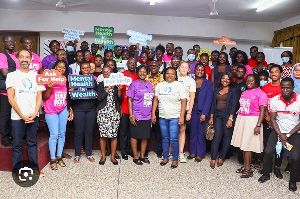In today's fast-paced digital world, the need for accessible, confidential, and effective guidance and counselling services has never been more critical. The landscape of mental health support is evolving rapidly, with digital platforms emerging as powerful tools to address the unique challenges faced by students and parents alike.
The rise of virtual guidance and counselling platforms represents a significant leap forward in mental health care accessibility. These digital solutions offer a myriad of benefits that traditional face-to-face counselling may not provide, particularly for those who value privacy or struggle with the stigma often associated with seeking help (Smith, 2002).
Digital counselling is an online therapy done through electronic means (examples: emails, video conferencing, online chat or phone call). The digital platform refers to the geographical, time, or even circadian distance. Digital counselling includes the assessment, treatment, education monitoring and collaboration between a professional therapist and a client (Camins, 2021).
The COVID 19 pandemic has significantly impact the approach of mental health care leading to the increase demand of mental health services through digital counselling due to the severity of the effect of the pandemic.
One of the primary advantages of digital counselling platforms is the unprecedented level of accessibility they offer. Students and parents can now access professional support from the comfort of their homes, eliminating geographical barriers and reducing the time and cost associated with travel (Johnson & Lee, 2023).
This is particularly beneficial for those in rural areas or with limited mobility, ensuring that quality mental health support is just a click away. Anonymity and privacy are paramount concerns for many individuals seeking counselling services.
Digital platforms address these concerns head-on by providing a secure, confidential environment where users can engage with professionals without fear of being seen entering a therapist's office or encountering acquaintances in waiting rooms. This level of privacy can be especially appealing to those who live in small communities or fear judgment from peers.
The flexibility offered by online counselling is another significant advantage. Many platforms now provide 24/7 access to support, accommodating the often unpredictable schedules of students and working parents. This round-the-clock availability ensures that help is at hand during critical moments, potentially preventing the escalation of mental health issues (Brown, 2021).
Moreover, digital platforms are breaking down the barriers of stigma that have long plagued mental health services. In many societies, there persists a misconception that seeking guidance and counselling is indicative of severe mental health issues or personal weakness.
This stigma can be particularly pronounced in educational settings, where students may fear being labeled or ostracized by their peers. Virtual platforms offer a discreet alternative, allowing individuals to seek help without the fear of public scrutiny.
The range of services offered through digital counselling platforms is expanding rapidly. From text-based chat sessions to video calls, users can choose the mode of communication that best suits their comfort level.
Many platforms also offer specialized services tailored to specific issues such as academic stress, family dynamics, or career guidance, ensuring that users can find support that is relevant to their unique situations.
For parents, these platforms provide an invaluable resource for understanding and supporting their children's mental health needs. They can access expert advice on parenting strategies, learn to recognize signs of distress in their children, and find guidance on how to foster open communication about mental health within the family unit.
The integration of artificial intelligence and machine learning in some digital counselling platforms is further enhancing the user experience (Davis, 2022). These technologies can help match users with the most suitable counselors based on their specific needs and preferences, potentially leading to more effective therapeutic relationships.
However, it's crucial to address potential concerns about the quality and effectiveness of online counselling compared to traditional methods.
Research has shown that online therapy can be just as effective as face-to-face sessions for many issues, and in some cases, may even be preferred by clients. The key lies in ensuring that these digital platforms maintain high standards of professional ethics, data security, and quality of care.
As we move forward, it's essential to promote awareness about the availability and benefits of digital counselling services. Educational institutions, community organizations, and healthcare providers should work together to destigmatize mental health support and encourage the use of these innovative platforms (Brown, 2021).
In conclusion, the advent of digital guidance and counselling platforms represents a significant step forward in making mental health support more accessible, private, and tailored to individual needs. By embracing these technologies in Ghana, we can create a more supportive environment for students and parents, ensuring that help is always within reach, regardless of physical location or social stigma.
As society continues to recognize the importance of mental health, these digital solutions will play an increasingly vital role in fostering well-being and resilience among students and families.
Opinions of Friday, 10 January 2025
Columnist: Akua Bema Asante















